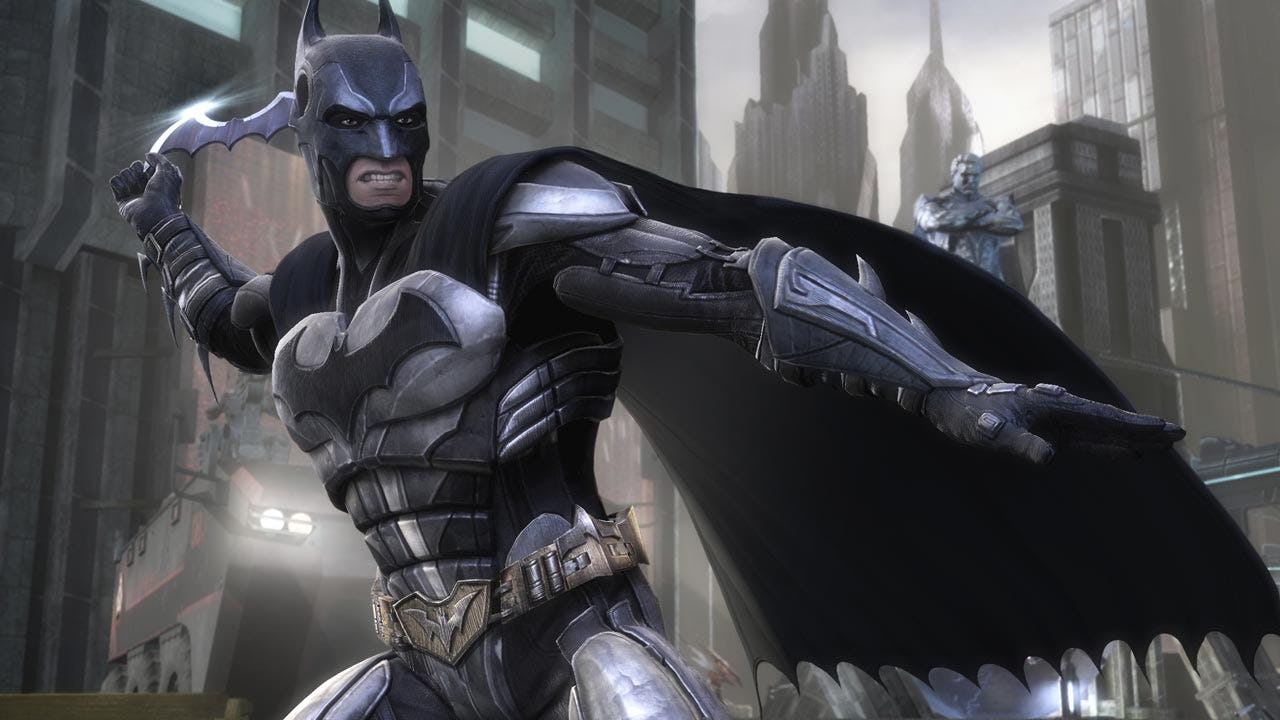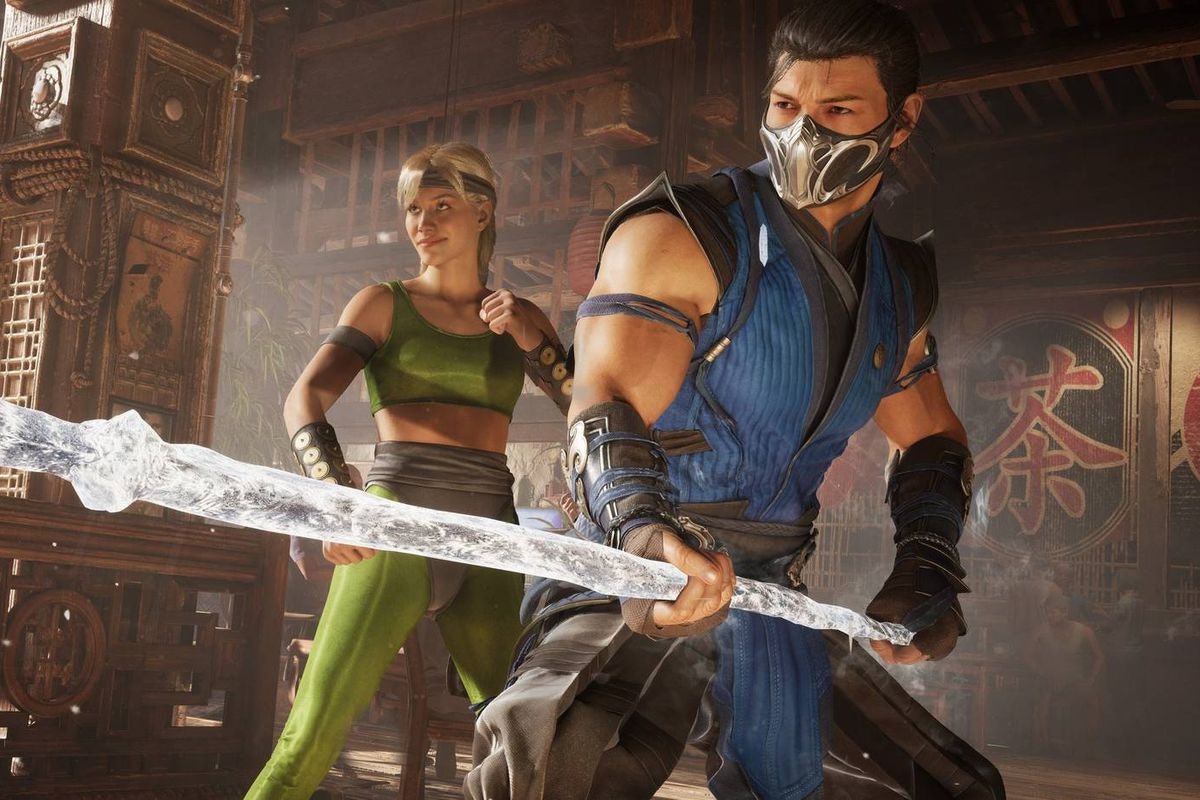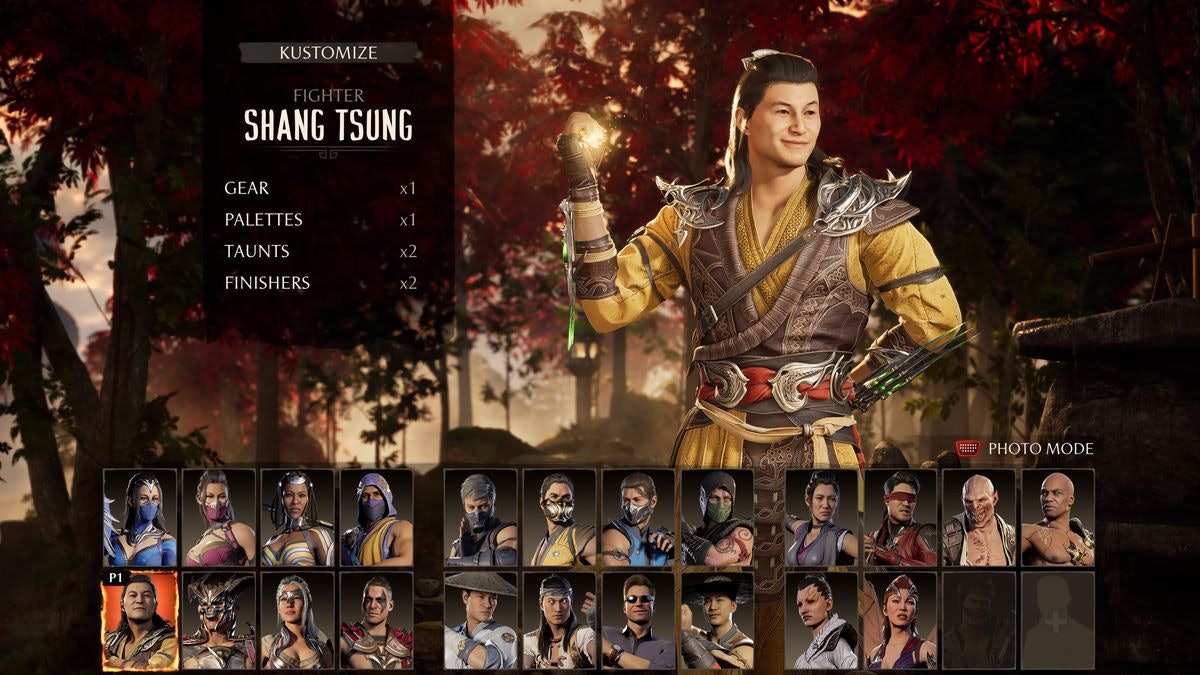
Before the release of Mortal Kombat 11, NetherRealm Studios received a very specific request: Would it be possible for the new fighting game to include a sound that plays when your character is in the exact right position to pick up an interactive object? (Like, for example, grabbing a rusty chainsaw off the ground and using it to cut your enemy in half.)
“He was a very qualified competitive player already, and we all wanted to support him,” director of audio Rich Carle tells Inverse. “So we put it in.”
That player was Carlos Vasquez, a sightless Mortal Kombat competitor who’s competed at Evo (one of the world’s biggest e-sports events) and founded his own MK tournament called the Sento Showdown exclusively for blind and low-vision individuals. Vasquez relies on audio cues to understand stage positioning, character movement, and even opponent actions like punches and fireballs. (You can watch him crush his opponent in this short PBS documentary.)
The new accessibility feature he suggested was a hit, and when NetherRealm was ready to start work on the next Mortal Kombat game (a reboot titled Mortal Kombat 1), the studio brought on Vasquez and Brandon Cole, a blind accessibility advocate with experience working on titles like Forza Motorsport and The Last of Us Part II, as official consultants.
The result, released earlier this year in September, is an impressive step forward for video game accessibility thanks to a total overhaul of Mortal Kombat’s “Extra Audio Feedback,” a setting that explains to sightless players what’s happening on the screen by making use of stereo sound.
“As you fight, the sound approaches and goes away as the fight progresses,” Vasquez says. This makes it easier for sightless players to track their position (and their opponent’s position) on the screen, so they can corner the enemy for a deadly combo — or pick up a stray chainsaw to deliver a fatal blow. But that’s just one example of the many ways NetherRealm Studios has managed to improve the accessibility options in each new Mortal Kombat game.
The Origins of Visual Accessibility

The modern accessibility movement, often defined by games with extensive menus and inclusive design practices, began in earnest approximately six years ago. You can trace the shift back to 2017’s Assassin’s Creed Origins, which launched with options to change the size of subtitles and the subtitle background, and clearly indicate which character was speaking. But the history of accessibility options in fighting games goes back even further.
Accessible designs and options have existed at NetherRealm Studios for years, “even if they weren’t labeled as such,” says Carle.
The studio’s director points to control remapping and notes that Injustice: Gods Among Us included extra audio feedback in 2013 as an example. Extra audio feedback provides audio cues when a player is near interactive objects, providing crucial information that blind and low-vision individuals would otherwise miss.
“He really lit the fire to make this the most accessible game in the franchise to date.”
Extra audio feedback opened up NetherRealm’s games to a whole new audience. After seeing an influx of new players, as well as immense levels of excitement from longtime fans, the studio used that knowledge to refine old mechanics and create new accessibility settings.
Fighting games are far more nuanced than simply mashing buttons to beat up your opponent. Players need to understand their character’s movements, the range of attacks, projectile speed, and even factors like when a move can be blocked. For blind and low-vision competitors, having each action expressed through accurate, customizable audio allows them to have most of the information that sighted players do.
“Over the years, we realized that some things we do are very important to players with vision [disabilities],” Carle says.
Mortal Kombat Levels Up

Six years after the release of Injustice: Gods Among Us, NetherRealm’s Mortal Kombat 11 took accessibility to impressive new levels. A combination of text-to-speech and speech-to-text features, for example, aided both deaf and hard-of-hearing players and blind and low-vision players. But the game’s real secret comes from anticipating features disabled players might want before they even ask for them.
Carle credits Jordan Hedges, a senior UX designer at NetherRealm, with many of those innovations. As the studio was preparing to release Mortal Kombat 11 in 2019, Hedges organized accessibility-focused meetings. He did the same thing four years later with Mortal Kombat 1.
“He really lit the fire to make this the most accessible game in the franchise to date,” Carle says.
Accessibility in games is a continuous process. For Mortal Kombat 1, Hedges wished to improve screen reader support, a necessity for blind and low-vision players. With Mortal Kombat 11, this option only worked for specific main menu selections, often leaving visually disabled individuals unable to fully process all information on screen. Even with features like extra audio feedback, crucial functions like character selection were inaccessible. When blind and low-vision individuals moved across the screen to find their fighter, the game would only respond after they hit confirm. This forced disabled players to memorize the movement patterns to find their specific pick before a match.
“It was a whole new type of user experience that was challenging and rewarding to design for.”
Mortal Kombat 1’s screen reader can handle any text that appears on screen, which gives sightless players as much independence as possible. Beyond character selection, Vasquez says, this gives him access to features that were previously off-limits, like using the game’s Training mode to “make the dummy jump over and over until they master anti-air attacks or learning how to defend against specific moves and set ups.”
For NetherRealm, this was easier said than done. The studio had to physically go through every single screen that appears in Mortal Kombat 1 and program the order in which various text gets read out loud to the player, along with what needed to be read each time someone toggles between different menus.
“It was a whole new type of user experience that was challenging and rewarding to design for,” UX designer Hedges tells Inverse.

Beyond character selections and settings menus, Mortal Kombat 1’s extra audio feedback goes one step further, thanks to the input of Vasquez and his co-consultant Cole. One of the best parts of any Mortal Kombat fight are the cinematic Fatalities that made the franchise a hit in the first place. Now, even the sightless can enjoy those moments in all their gory detail.
“It was also their suggestion to add descriptive audio to the game,” Carle says. “The thought of having restrained, factual commentary read stoically over the extreme visuals of Fatalities and Fatal Blows made us all chuckle.”
The NetherRealm Studios of 2013 is a stark contrast compared with now. The attention to accessibility detail was always there, but through understanding the needs of disabled players, as well as grasping the limitations of available systems, the options have drastically evolved. And while Mortal Kombat 1 is the pinnacle of accessibility at the studio, it’s not an endpoint. Future games will continue to meet the needs of disabled players.
But as Carle notes, there’s always more work to be done.
“Accessibility features will continue to be improved and refined,” he says. “We are very eager to hear back from our players about the new accessibility features — especially players new to the franchise. What works? What doesn’t? We are ready to invest in support systems that help everyday players play. I look forward to the day when someone can make use of our extensive accessibilities features and win a major tournament.”







